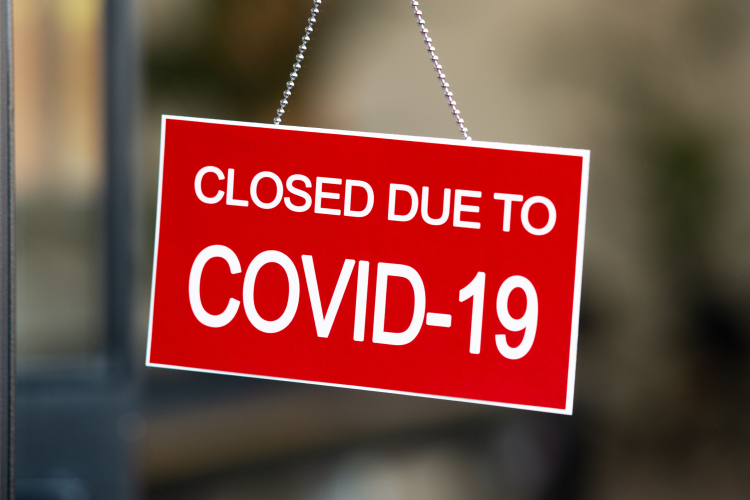Insurers win case to deduct furlough from Covid BI claims

Appeals are expected after the latest High Court judgments relating to insurers’ treatment of claims made for business interruption during the pandemic.
On 17 October, the UK’s High Court ruled on three lawsuits between insurers and companies making business interruption (BI) claims related to Covid-19.
The three cases are: Stonegate Pub Company vs MS Amlin, Liberty Mutual Insurance Europe and Zurich; Various Eateries vs Allianz Insurance; and Greggs vs Zurich Insurance.
These three lawsuits follow the Financial Conduct Authority’s Test Case, on which the Supreme Court ruled substantially in favour of the FCA’s appeal on behalf of policyholders in January 2021.
Stonegate, the UK’s largest pub chain, claimed £845 million in BI losses on the basis of an entitlement to multiple policy limits across various policy coverages.
The company’s insurers did not argue that cover had been triggered, but contended that their liability was limited to £17.5 million. The insurers had already paid out £14.5 million of this total, including £12 million for additional increased costs of working.
The High Court ruled in favour of the insurers, led by MS Amlin, deducting Covid furlough support from the value of claims.
“We welcome the judgment of the High Court, and believe this brings some genuine clarity to a very complex business interruption case,” said Johan Slabbert, CEO, MS Amlin Underwriting.
“This is a positive outcome for us and is of significance to the entire insurance industry, who I’m sure will be keen to read the full details of the judgment, as issues around furlough payments and aggregation in particular have the potential to have an enormous financial impact for insurers throughout the UK,” he added.
Stonegate described the outcome as “far from conclusive” and said it intends to appeal.
The Greggs case hung on whether multiple lockdowns meant multiple limits.
A spokesperson for legal firm Charles Russell Speechlys, acting for Greggs, said: “Today’s judgment substantially accepts Greggs’ primary case for payment of business interruption and related losses caused by Covid-19 and its consequences.”
The insurers contented that one limit of £2.5 million applied, something Greggs’ legal spokesman said has been “firmly rejected” by the High Court.
The judge ruled that there was a single occurrence at the outset – lockdown from March 2020 until May 2020 – followed by separate occurrences in each jurisdiction within the UK as the level of major restrictions in place was adjusted, and separate occurrences within each jurisdiction where there were local lockdowns or other restrictions.
The judge also held that those regulations which merely continued existing restrictions or made trivial changes did not provide additional £2.5 million limits.
Charles Russell Speechlys Partner, Manoj Vaghela, commented: “This outcome vindicates Greggs commencing proceedings and has wider implications for all businesses that purchased the Resilience Insurance policies. Insurers’ argument that there was only one limit available for Covid business interruption losses has been firmly rejected.
Subject to appeal, Greggs v Zurich Insurance plc will proceed to phase two, in which the insurers and Greggs will calculate the value of the BI loss recoverable under the policy.
In its case, Various Eateries argued in its £16 million claim lawsuit against Allianz for ‘per premise’ treatment for numerous ‘covered events’ under the policy’s disease clause.
Allianz’s primary case was not one which had a counterpart in Stonegate v MS Amlin, or in Greggs v Zurich. It was instead based on the proposition that the Divisional Court in the FCA Test Case had rejected a submission that the Disease Clause provided cover only for ‘events’, and extended to providing cover for ‘states of affairs’.
However, the judge rejected Allianz’s primary case on this issue.
Broker analysis
Insurance broker Lockton published an analysis of the judgments on the three cases.
“It is clear from these three first instance judgments that the Court’s ruling is very much specific to the policy wording. Those policyholders insured on other policy forms may find that the ruling is not directly applicable to the arguments they are presenting to their insurers,” said Samuel Ellerton, Regional Claims Lead, Lockton.
“Some policyholders and practitioners may find some utility in the analysis undertaken with respect to what can trigger a ‘covered event’ and what features of the Covid-19 pandemic (and the UK government’s response to it) could be said to meet the legal definition of an ‘occurrence’. Those who were seeking, as per Greggs, to show that separate UK government restrictions could constitute separate ‘Occurrences’ for the purposes of accessing separate policy limits will welcome the decision.
“However, whilst the specific legal argument may be irrelevant to many policyholders, the change in prevailing winds following the very pro-policyholder decisions in the FCA Test Case and Corbin & King v AXA, may be concerning. In particular, the Court’s determination that insurers are able to take the benefit of furlough and business rates relief is likely to be disappointing and frustrating to many.
“Others with differing BI quantification machinery in their policies may retain hopes of success, but certainly these judgments are not the positive bellwether that some policyholders were hoping for. The High Court’s willingness to get into the weeds on issues of proximate cause and aggregation is also evident across the judgments; both areas which have the potential to vastly reduce the value of policyholder claims if decided in insurers’ favour
“An appeal is highly likely given the relatively narrow interpretation taken by Mr. Justice Butcher, particularly given the broad approach to causation taken previously by the Supreme Court in the FCA Test Case. In the meantime, however, those pursuing Covid-19 BI claims may find their insurer’s approach is hardening, given the largely restrictive and pro-Defendant flavour of these decisions.”
